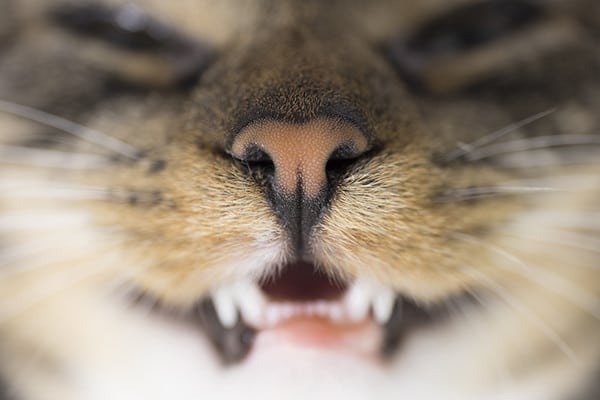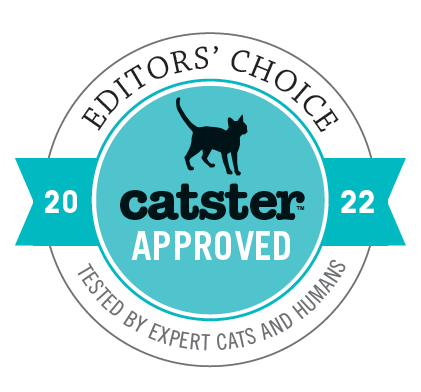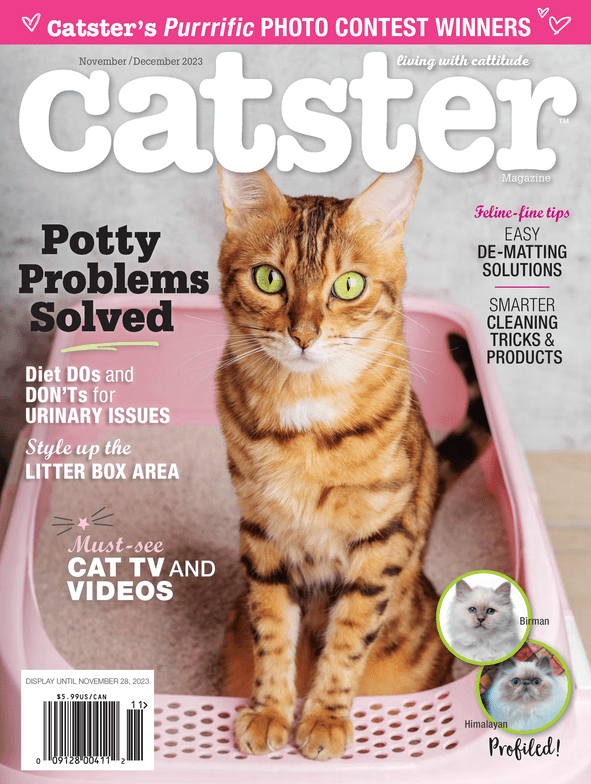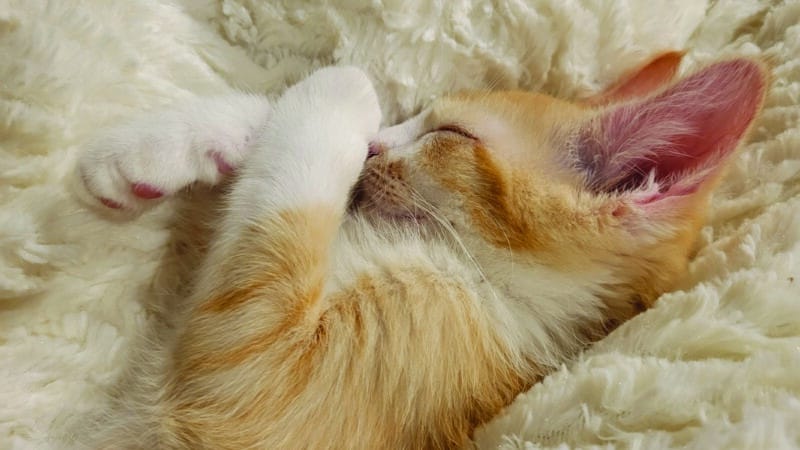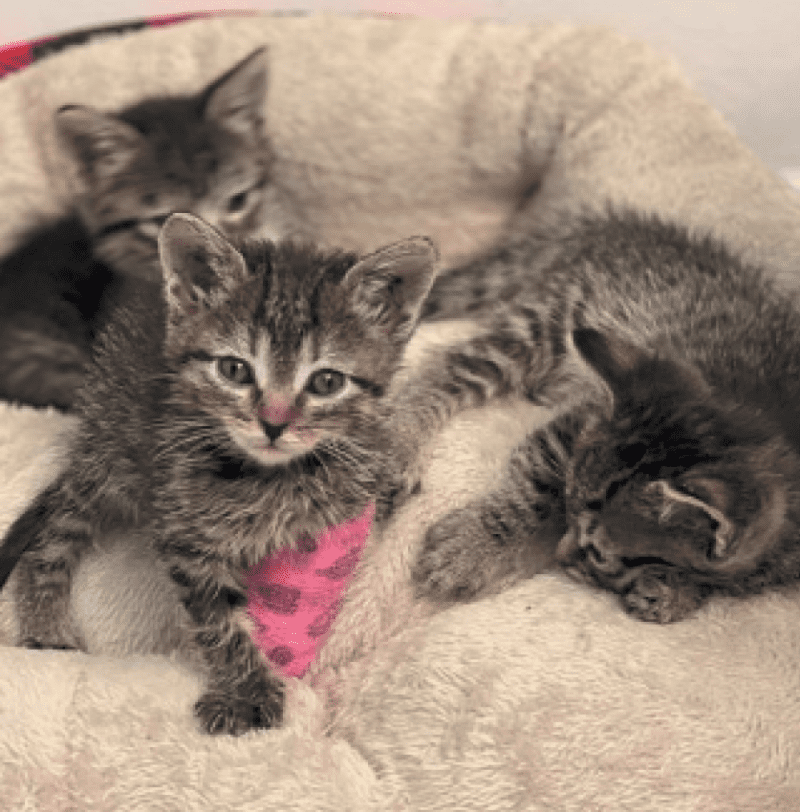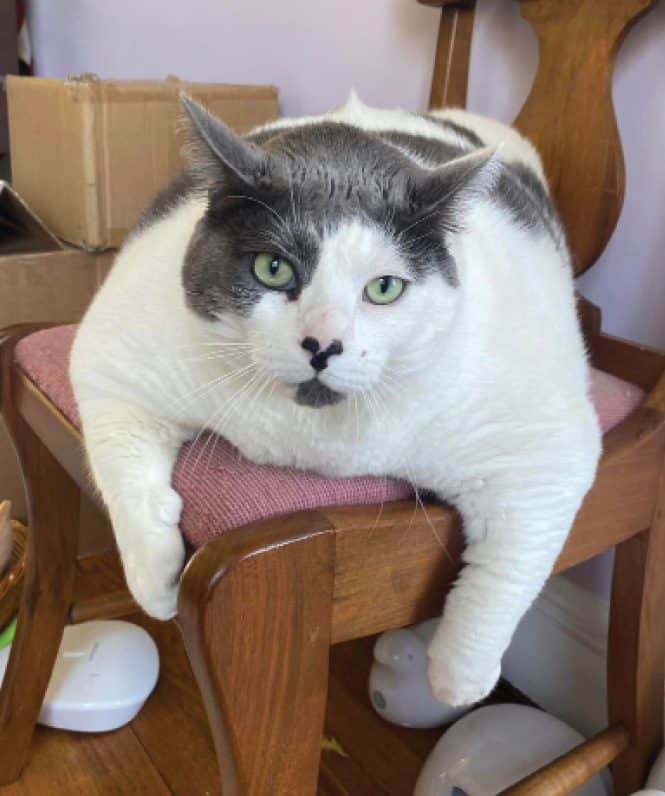Tooth grinding is very common in people. In fact, nighttime grinding of teeth has spawned an entire cottage industry for “night guards,” prevent people from damaging their teeth as they grind away while they’re sawing logs. It turns out that humans aren’t the only species subject to tooth grinding. Cat teeth grinding is a thing, too. Unlike people, cats generally grind their teeth when they are awake, and it generally seems to be a conscious process. Let’s learn more in honor of National Pet Dental Health Month.
First, what is cat teeth grinding — a.k.a. bruxism?
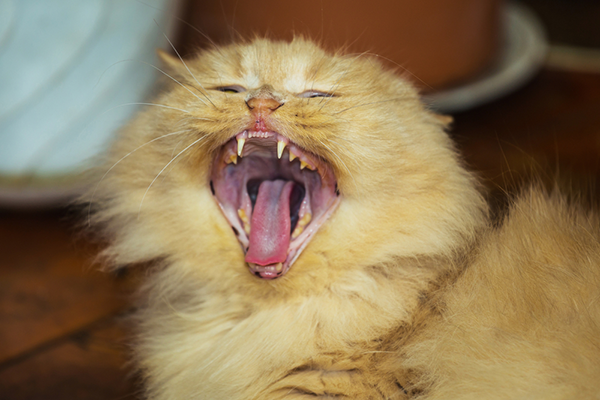
Clients bring cats to me with complaints of cat teeth grinding not infrequently. When I was in general practice, many of the clients brought the issue to my attention only because the noises produced during said cat teeth grinding were annoying. Now, at the emergency hospital where I work, people generally bring their tooth-grinding cats to me out of concern that a medical problem may be causing the phenomenon.
Like everything in medicine, tooth grinding has a fancy name: bruxism. Bruxism has many possible causes.
FORLs and other cat dental diseases cause cat teeth grinding
Several weeks ago a client brought a cat to me for evaluation of bruxism. The cat had been grinding his teeth during and after meals for a month. On the day in question, however, the cat had been grinding nearly continuously. Indeed, in the exam room the cat made frequent — nearly continuous — loud grinding noises.
This background is not uncommon. Tooth grinding often starts off being triggered by meals or grooming or other activities that stimulate the mouth. The phenomenon then may progress to more frequent episodes.
He was a nice cat, and he readily allowed me to perform an oral exam. The cat had significant dental disease. He also had a number of FORLs (short for feline odontoclastic resorptive lesions). FORLs manifest as visible enamel lesions in teeth. By the time enamel lesions are visible, the affected teeth will have very significant pathology. FORLs are extremely painful.
I strongly believed that the cat’s dental problems were the cause of his bruxism. This is not a surprise — it turns out that dental problems are a leading cause of tooth grinding in cats. I recommended comprehensive dental work, to be performed at the family veterinarian’s facility (emergency clinics generally have limited dental procedure capabilities). I prescribed pain killers and antibiotics in the meanwhile.
FORLs often cause tooth grinding. Old fashioned dental disease, which occurs as the teeth and their roots become infected by oral bacteria, is an even more common cause of bruxism. Other dental problems, such as fractured (chipped) teeth, malocclusion of teeth, oral tumors, oral trauma, and foreign material lodged in the oral cavity also can cause cats to grind.
TMJ issues might make a cat grind his teeth
Although it doesn’t exactly count as an oral structure, the temporomandibular joint (TMJ) — or rather problems with the TMJ — also may cause tooth grinding. The TMJ is where the jaw attaches to the skull. Problems with the TMJ are much less common in cats than in humans (in our species, TMJ problems are epidemic), but they still happen and they definitely can cause bruxism.
Oral and TMJ problems are not the only potential causes of feline tooth grinding. Dentists have found a link between stress and nighttime human tooth grinding. Although cats generally grind when they’re awake, it turns out that stress also may cause them to engage in bruxism. Cats who live with unfriendly feline housemates or who experience other stresses may grind their teeth as a result.
Oddly enough, cats may grind their teeth when experiencing abdominal pain
Bruxism may be a sign of pain in cats. Interestingly, many experts have noticed a link between abdominal pain and feline tooth grinding. Stories abound of cats with bruxism ultimately being diagnosed with masses in their abdomens associated with their livers or intestines.
Nausea is another cause of cat bruxism
Nausea also commonly causes bruxism. Common causes of frequent nausea in cats (which might lead to frequent bruxism) include inflammatory bowel disease and intestinal lymphoma (especially in older cats). Pancreatitis is a complicated condition that may cause both nausea and abdominal pain, so it may cause bruxism in more ways than one.
Neurological disorders can also cause a cat to grind his teeth
Neurological disorders may cause bruxism. Some cats experience focal, petit mal facial seizures that manifest as tooth grinding. Other brain lesions, including inflammatory brain diseases and ever-dreaded brain tumors, also may cause the phenomenon.
A final word on cat teeth grinding
Although many owners seek treatment for bruxism because they are annoyed by the sounds created during the phenomenon, be aware that many cases of tooth grinding are linked to medical problems. Some of the medical problems that cause bruxism are serious or even life threatening, and most of them are painful at the very least.
I do not recommend ignoring tooth grinding in cats. Instead, cats that grind their teeth should be evaluated by a veterinarian.
Thumbnail: Photography by Henk Vrieselaar / Shutterstock.
Read more about cats and dental issues:

